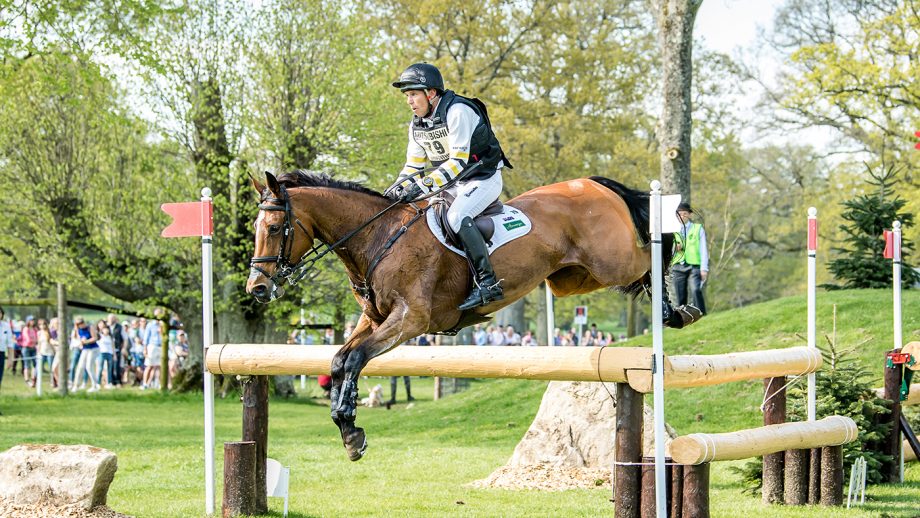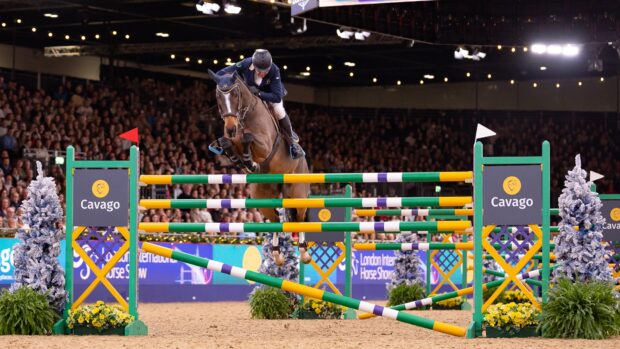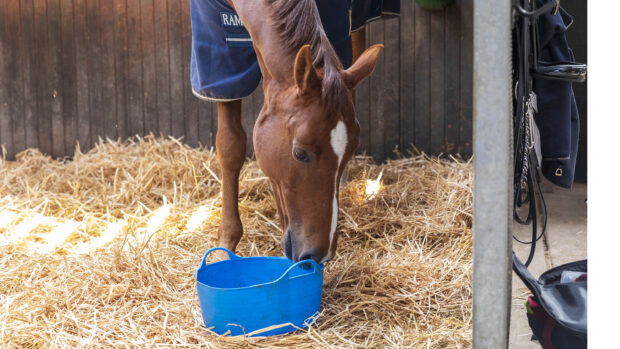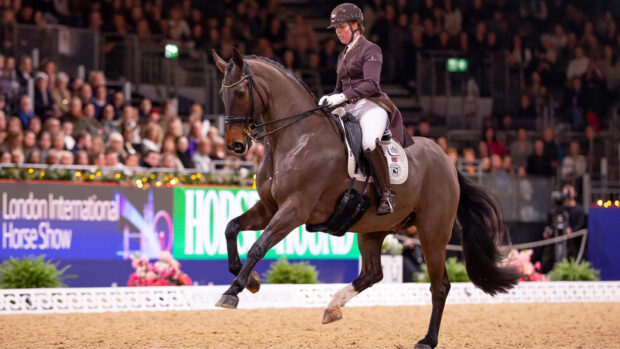Air vests are officially recommended for cross-country in international eventing fixtures for the first time in 2022.
This new recommendation is just that – it is not a compulsory requirement, and body protectors to the correct standard must still be worn.
“We can’t make it mandatory yet for two reasons,” FEI medical committee chairman Mark Hart told the eventing risk management seminar (22 January).
“One, we don’t have enough definitive evidence to show the beneficial effect, and if there is any potential downside.”
He added that the FEI has started to contact other sports, including motocross and car racing in this area, as it looks further towards protection for the neck, chest, back, abdominal organs and shoulders.
“I think more research needs to be done. I think the preponderance of evidence is that air vests probably do help a majority of the time,” said Dr Hart.
“As we know from seat belts, there are rare cases where seat belts actually are deleterious. You have to look at the overall benefit of a particular safety measure, knowing that it’s not going to work in every situation.”
H&H has contacted British Eventing to ask whether it will be recommending air vests for cross-country in national classes.
Dr Hart also spoke of upgrades to the FEI rules for provision of medical services at events. In essence, this is moving towards ensuring qualified professionals with certain skills are on duty for each phase, rather than choosing medical cover based on job title. These are recommended for two years, before they have to be followed, and will become mandatory from 2023.
There is also a move towards continued monitoring of riders who have had a fall, throughout their time at a venue. At the moment, riders must be checked by the medical officer after a fall – regardless of whether they fell in training or competition – before they get back on a horse or leave the venue.
With concussion “high on the radar”, Dr Hart said there is a responsibility “to check in on” riders throughout their time on site.
“We know that a lot of concussions are missed,” he said. “The hard part is that we cannot always diagnose a concussion in the first five minutes. Sometimes concussion symptoms come on 30 minutes later, even that night or the next day.”
He added that bleeds on the brain also “don’t always present right away”.
“I think we need to get two parts of this concept. One, we do have measures to immediately assess whether somebody has had a serious concussion or not,” he said.
“But secondly, [realise that] this is a dynamic process and I think we have to change the medical response to those people who fall, who possibly had a concussion, [and that they] have to be evaluated throughout their time on the venue.”
He said time-frames have not been specified; the key message is that someone can “look great after a fall”, but there remains a “responsibility to check in on them”.
Dr Hart also indicated that the FEI is looking at the potential of concussion blood tests in the near future.
“It’s fascinating,” he said. “My day job is as a cardiologist and we use blood tests to look at damage to the heart every day.”
He added that there are tests already, some of which look for markers indicating brain injury immediately after suspected concussions, and some used hours later.
“I think blood tests will be very important, but there’s a lot of research that has to happen to correlate that with the clinical scenario that’s happening, and what we do with the results once we have them,” he said. “We are definitely working on that.”
You might also be interested in:

Subscribe to Horse & Hound magazine today – and enjoy unlimited website access all year round

Making eventing safer: new tool to help riders assess their form accurately

Errors in eventing results affect safety and much more, warns FEI

Badminton winner steps back from competing to coach New Zealand eventing team

Young horse world champion sold to up-and-coming eventer with Paris 2024 ambitions
Horse & Hound magazine, out every Thursday, is packed with all the latest news and reports, as well as interviews, specials, nostalgia, vet and training advice. Find how you can enjoy the magazine delivered to your door every week, plus options to upgrade your subscription to access our online service that brings you breaking news and reports as well as other benefits.




